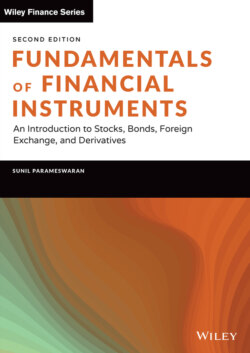Читать книгу Fundamentals of Financial Instruments - Sunil K. Parameswaran - Страница 59
На сайте Литреса книга снята с продажи.
ARBITRAGE WITH ADRs
ОглавлениеMispriced ADRs will be exploited by arbitrageurs. We will illustrate this with the help of an example.
Let's assume that shares of the Indian information technology company Infosys Technologies are quoting at INR 1,500 on the National Stock Exchange (NSE) in Mumbai, and that Infosys ADRs, where each ADR represents 20 domestic shares, are quoting at $410 on the NYSE. The current exchange rate is INR 75 per USD.
Quite obviously the ADRs are overvalued, for the dollar equivalent of 20 shares should be $400. An arbitrageur will short sell the ADRs in New York, acquiring 20 shares on the NSE for every ADR that is sold short, and then deliver them to the custodian bank in Mumbai, which will inform the depository bank in New York. On receiving intimation from Mumbai, the bank in New York will issue an ADR which can be used to cover the short position. The cost of acquisition of 20 shares in Mumbai will be INR 30,000 or $400. The proceeds from the short sale in New York will be $410. Consequently, an arbitrage profit of $10 can be earned.
Now let's examine a situation where ADRs are undervalued. What if the price of the Infosys ADR were to be $390? If so, an arbitrageur would acquire an ADR for $390 and deliver it to the depository bank in New York with instructions to sell the underlying shares in Mumbai. The sale proceeds will amount to INR 30,000 or $400. Once again, the arbitrageur will realize an arbitrage profit of $10.
J.P. Morgan was a pioneer in the creation of ADRs. They created the first ADR in 1927 to facilitate investment in foreign companies by American investors. An ADR is considered to be an American security, and consequently is freely tradable in the United States. It is akin to any other domestic security for the purpose of clearing and settlement.
